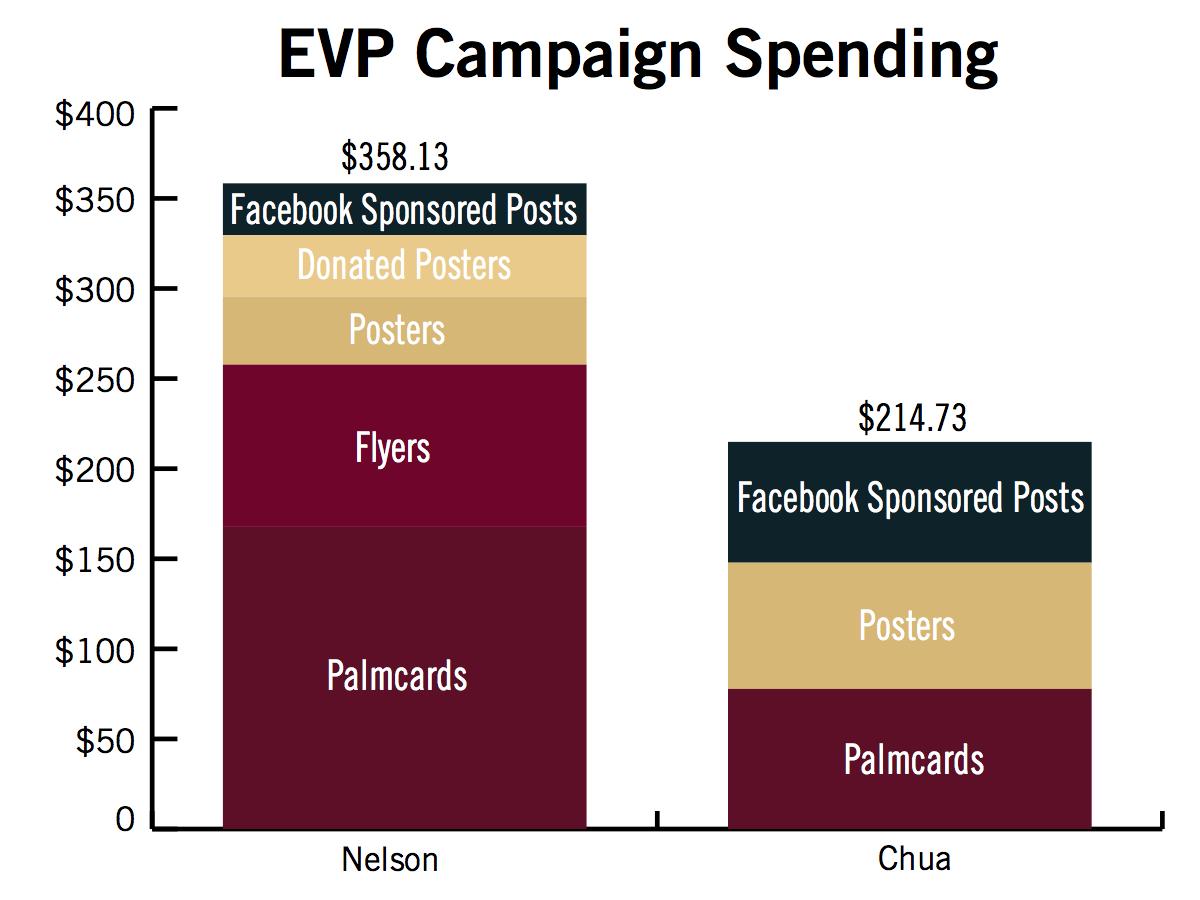
Tina Tran | Hatchet Designer
Source: Joint Elections Committee
Peak Sen Chua won the Student Association’s executive vice presidential race despite spending less on his campaign than his opponent.
Chua, the SA’s president-elect, spent about $214 in his campaign, about $144 less than his former opponent, Sydney Nelson who spent about $358, according to documents posted by the Joint Elections Committee – the student body that oversees the elections.
Chua spent about $77 on palm cards, his largest campaign expense. He dedicated the rest of his campaign funds to Facebook advertisements and posters.
Nelson spent about $329 on flyers, palm cards and posters. She also took out Facebook advertisements, spending roughly $29 on those efforts.
Reports were not posted for the three former presidential candidates after the presidential race was postponed to the fall and later cancelled.
Chua was named SA president-elect last week after SA President Erika Feinman signed a bill allowing the executive vice president-elect to become president-elect when the position is vacant. The same night, Chua nominated and the senate-elect unanimously confirmed Nelson as executive vice president-elect.
Last year, Feinman spent about $478 on their successful presidential campaign.
Chua and Nelson’s campaign spending represents an increase from the past two executive vice presidential races. Last year, Executive Vice President Thomas Falcigno didn’t spent any money on his campaign as he ran unopposed for the position.
In 2015, former Executive Vice President Casey Syron spent less than $150 during his race and his opponents Spencer Perry and Carlo Wood spent about $800 and $200 respectively.
Affordability has been a major topic of discussion in SA elections in recent years. In January 2016, the senate capped spending for presidential and executive vice president candidates at $600, part of an effort to remove economic barriers to student leadership.
In November, the SA passed a bill changing the JEC charter to require that financial expenditure reports be made public in all races.
The JEC made public the candidates’ financial disclosure forms last week, nearly two weeks after the election.
JEC Chair Alex Simone initially said the forms had not been posted because the committee received an unusually large number of complaints this election cycle, including harassment and intimidation allegations that disqualified former SA presidential candidate Lande Watson.
“I have been working with our advisers to make sure sensitive information in the documents is redacted, which we have never had to do before and has taken more time than anticipated,” she said last week.
The forms posted on the JEC website redact all candidates’ phone numbers. The committee was criticized after it initially posted the unredacted harassment and intimidation complaints filed against Watson on its website.




